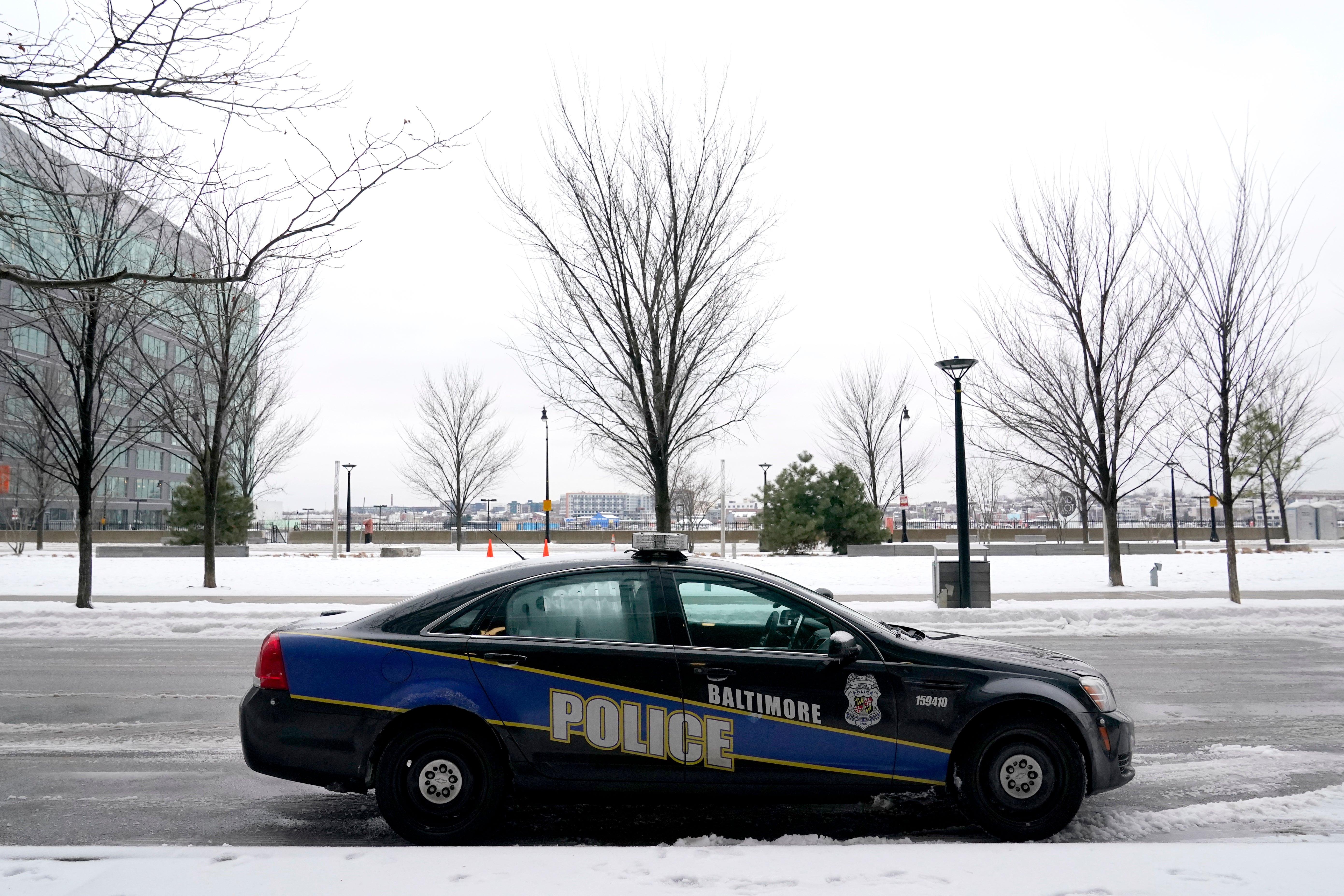Maryland lawmakers plan to override vetoes on police reform
Maryland lawmakers are gathering to override Gov. Larry Hogan's vetoes of three police reform measures

Maryland lawmakers gathered Saturday with plans to override Gov. Larry Hogan’s vetoes of three police reform measures.
The Republican governor vetoed legislation Friday that includes the core components of a far-reaching police reform package. Lawmakers have been working on the reforms for about 10 months, beginning after the nationwide protests against racial injustice following the death of George Floyd in police custody in Minnesota.
The legislation is a top priority of the Maryland General Assembly, which is controlled by Democrats. All of the measures passed with more than the three-fifths vote needed to override Hogan's vetoes.
"The Senate will take the necessary action to ensure that we can have safer communities and fairer policing throughout our state,” Senate President Bill Ferguson, a Baltimore Democrat said, moments after the vetoes were announced Friday night.
The House of Delegates got to work right away, voting 95-42 Friday night to override one of the vetoes of legislation that repeals job protections in the police disciplinary process that critics say impede accountability. Maryland approved the nation's first Law Enforcement Officers Bill of Rights in 1974, and about 20 states have adopted similar laws setting due process procedure for investigating police misconduct.
Hogan also vetoed a measure with a new statewide use-of-force policy and mandated use of body cameras statewide by July 2025.
Another vetoed measure would expand public access to records in police disciplinary cases and limit the use of no-knock warrants. Under the bill, police could only use no-knock warrants between 8 a.m. and 7 p.m., except in an emergency.
In his veto message, Hogan wrote that he believed the measures would “further erode police morale, community relationships, and public confidence.”
“They will result in great damage to police recruitment and retention, posing significant risks to public safety throughout our state,” Hogan wrote.
Clyde Boatwright, president of the Maryland State Fraternal Order of Police, thanked the governor for vetoing the legislation and agreed with Hogan that the measures would hurt hiring and retention of police.
“It is our hope that we can work collaboratively with our elected officials to continue to enact meaningful police reform that improves public safety and improves trust in policing while protecting law enforcement officers,” Boatwright said.
Hogan wrote that two measures approved by the legislature would go into effect without his signature.
One of them would create a unit in the attorney general’s office to investigate police-involved deaths and prohibit law enforcement from buying surplus military equipment. The other would enable Baltimore voters to decide whether the state’s largest city should take full control of the police department from the state.
Maryland has struggled with police accountability problems in recent years. Baltimore’s police department entered into a federal consent decree after Freddie Gray suffered a broken neck in police custody and died, sparking unrest in the city in 2015. Lawmakers approved some police reforms the following year, but critics have said they were not enough.
One of the bills vetoed Friday would expand public access to police personnel disciplinary records now shielded under the state’s public information act. It is named after Anton Black, a Black 19-year-old who died in police custody in 2018 in a rural town on Maryland’s Eastern Shore.
Bookmark popover
Removed from bookmarks